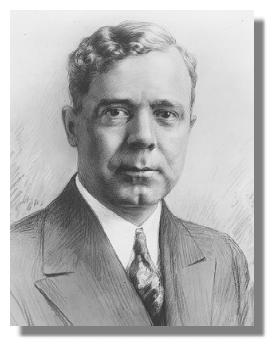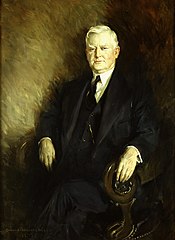Chapter 1: The Pond
Some considered Long the most handsome man in America
Huey Long held the power in Louisiana, there was no doubt about that. He was a Senator but he controlled the Governor's mansion through and through.
His radical Share Our Wealth program funded projects for the poor by taxing the wealthy of Louisiana with huge amounts. He'd taxed oil, he'd taxed wealth. He taxed newspapers, but that was to clamp down on opposition. He'd fought back an impeachment attempt from the legislature. Every man and women in employed by the state owed their jobs to Long, and owed part of their paycheck to his war chest. He'd broken the New Orleans power brokers and his Bureau of Criminal Identification responded to me. In 1930 he was elected to the Senate which he used to lay out his radical plans for a national scale.
Long claimed the New Deal was not enough and that more radical change was needed. His "Share Our Wealth" movement went nationwide with millions of members and his Senate speeches captured anger at the state of the economy and nation, even as both improved. But the Kingfish had plans for a higher platform to enact his plans then a mere Senate seat. He'd backed the New Deal in its early stages and vocally supported it. That had changed.
Long now criticized the New Deal as being too friendly to business and keeping the poor down. He challenged Roosevelt from the Left, whipping up populist fervor in favor of his radical ideas to cap the rich's wealth provide a universal income to the poor. He promised pensions for all and free education, veterans benefits and government intervention to help agriculture. The Longist Newspaper,
American Progress skyrocketed in circulation as he became a voice for those who thought President Roosevelt hadn't done enough.
An collation arose in support of Long's challenge, the radical anti-Semitic Father Charles Coughlin of Detroit blasted the airwaves against the New Deal. Francis Townsend, architect of Social Security also jumped into Long's movement. Progressives on both sides of the aisle lent a sympathetic war to Long's ideals, though no one had yet taken the plunge into backing Long. For anyone dissatisfied with Roosevelt but unwilling to turn to the tainted Republican Party the Share Our Wealth Movement represented an intriguing opportunity. Radical proposals to equalize the economy blended with blood curdling attacks on Communism into a unique quasi-Fascist movement that kept expanding as the 1936 election grew near.
Huey P. Long didn't want just Louisiana. He wanted it all. He wanted to be President of the United States, and he'd be damned if he waited for his own parties President to retire.
Roosevelt was nervous about Long and made moves to ensure the Senator could not mount a significant challenge to the President for the nomination. He made personal appeals to Southern Democrats to shore up support, and even temporarily patched up his rocky relationship with Vice President James Garner to try and stifle Long's support in Texas. Roosevelt focused heavily on Arkansas, where Long had given a popular speaking tour. Roosevelt also took care to back proposals that might sap the bite from attacks Long made in order to beef up Progressive support.
Roosevelt proved successful enough, with no 2/3rds rule in place he believed he easily had enough to crush Long on the ballot. Roosevelt was right, his control over the Democratic Party was too tight to be broken and even skeptics of the New Deal preferred it to whatever Long was proposing. Long couldn't win. The President was now more concerned with who the Republicans would nominate, having stifled the Louisiana Senator.
Or so he thought.
Huey Long had never expected to beat Roosevelt, not with the Presidents control over the party. The Kingfish was playing a longer game. He wasn't planning on taking the White House in 1936, he was running in 1940. But first he needed a Republican and a sacrificial Lion to pave the way.










